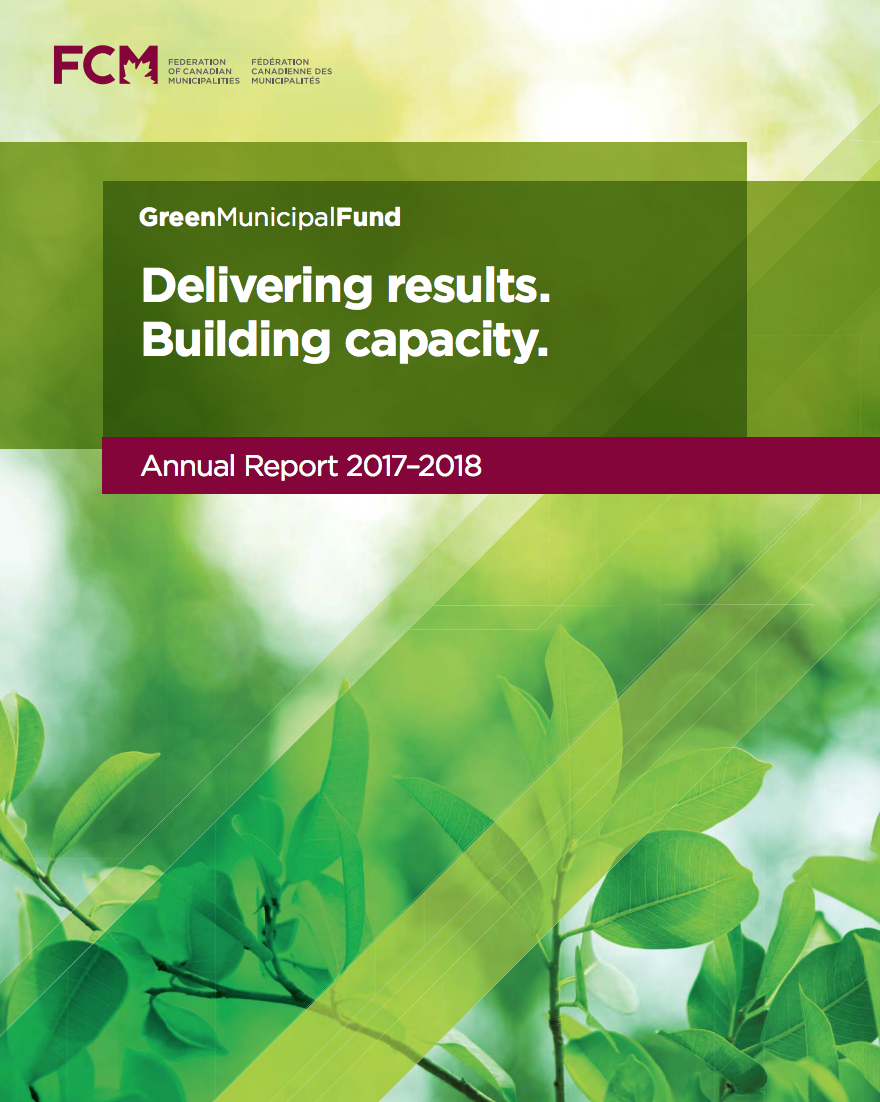
Federation of Canadian Municipalities, Government of Canada.
$599 million
Green Municipal Fund
Investing in innovation towards improved sustainability
“Accelerating the transition to resilient Canadian municipalities that enhance the quality of the air, water and land, protect the climate, and ensure sustainable levels of service and community prosperity” (Federation of Canadian Municipalities, 2017, p. 8).
Support new ideas
In 2000, the Green Municipal Fund (GMF) was created by the Government of Canada to assist municipalities in the development of prosperous communities that benefit people and the environment.
Projects funded by the GMF must have 3 qualities: significant environmental, social benefits and a strong business case. They include municipal plans, feasibility studies, pilot projects and capital projects that support sustainable community development. The GMF supports community leaders by encouraging innovation and sharing best practices in green solutions; connecting industry leaders to allow for knowledge sharing; building capacity in municipalities through workshops and asset management support. Funds are allocated for: sustainable neighbourhood and brownfield action plans; energy efficiency and recovery; transportation and fuel efficiency; water quality and conservation waste management and diversion; and brownfields.
Feasibility studies grants up to 50% of eligible costs to a maximum of $175,000. Pilot project grants up to 50% of eligible costs to a maximum of $350,000. Capital projects offered low-interest loans, in combination with grants for up to 80% of eligible project costs.
The GMF works with municipalities to access more funds for sustainability projects from federal, provincial and territorial governments as well as public and private sector partners.
Empowering Canadians to create real change
The GMF has supported over 1200 initiatives across Canada. The Annual Report summarizes results for 2017/2018. Notably, all initiatives combined contributed to 2.5 million tonnes of reduced greenhouse gas emissions and $823,096,636 of national GDP created from all completed plans, studies, pilots and capital projects.
The Federation of Canadian Municipalities (FCM) offers Sustainable Communities Awards to honour and celebrate the most innovative environmental initiatives across Canada. The City of Kingston and the City of Montreal were co-winners in the transportation category for 2018.
The City of Kingston increased student public transit usage by 20 times by hosting a bus orientation program through their Transit High School Bus Pass Project. The orientation introduced students to the transit system, taught them about the environmental benefits of public transit, how they could save money by taking transit, and how riding the bus increases their freedom to travel. Students in the program said “the transit pass helped them feel more independent and let them participate in more activities-such as volunteering, work, and sports”.
The City of Montreal’s Pedestrian and Shared Street Program supported small-scale, community-led street design projects that encouraged walking and cycling and adding greenery to urban spaces. The program made changes to streets near existing public places, including shops, schools and markets, to improve pedestrian access and experience. The City created 12 shared and pedestrianized streets and more are being developed. The City made small changes the first year, and modifications over the second and third year based on feedback from community members.
Thank you for helping us develop positive solutions to climate change, FCM!

